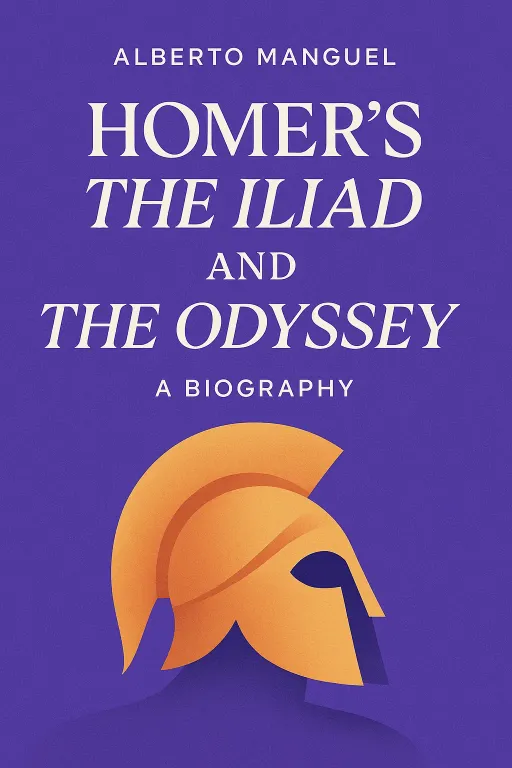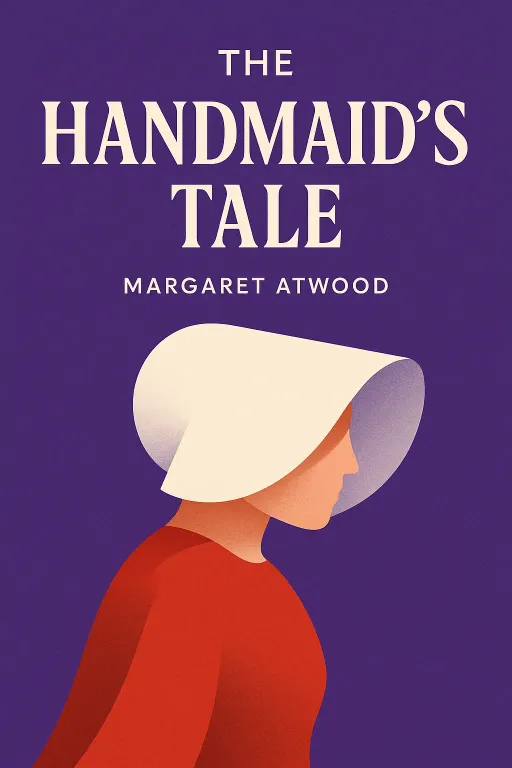
Homer’s The Iliad and The Odyssey
10 minA Biography
Introduction
Narrator: In 1990, the Colombian Ministry of Culture launched a program to bring literature to remote, war-torn communities. Librarians traveled on donkeys, carrying books to villages in the sierra. Weeks later, they returned to one village to exchange the books, but the villagers had a strange request: they refused to give back one specific volume. The book wasn't a practical guide or a religious text. It was a Spanish translation of Homer's Iliad. When the librarians asked why, the villagers explained that the story was their own. The epic of a distant, ancient war, with its capricious gods and uncertain fate, resonated so deeply with their own lives that they couldn't part with it.
This incredible power—the ability of two ancient poems to transcend time, culture, and language—is the central mystery explored in Alberto Manguel's book, Homer’s The Iliad and The Odyssey: A Biography. Manguel argues that these poems are not static artifacts but living entities, whose "biography" is the story of their endless journey through the minds of their readers, from ancient philosophers to modern villagers.
The Poems Live Through Universal Human Experience
Key Insight 1
Narrator: The enduring life of the Iliad and the Odyssey stems from their exploration of two fundamental metaphors for human existence: life as a battle and life as a journey. Manguel asserts that their power isn't just in the plot, but in their ability to connect with universal emotions that transcend any single culture. The story of the Colombian villagers is a perfect testament to this. They had no formal classical education, yet they recognized their own struggles with conflict and fate in the pages of the Iliad.
This emotional connection is most powerfully illustrated in the final book of the Iliad. Achilles, the great Greek warrior, is consumed by rage and grief after his friend Patroclus is killed. He has slain the Trojan hero Hector in revenge and dishonored his body. But then Priam, the elderly king of Troy and Hector's father, risks everything to enter the enemy camp and beg for his son's body. He appeals not to Achilles the warrior, but to Achilles the son, reminding him of his own aging father. In that moment, the two enemies weep together—Priam for his son, and Achilles for his father and for Patroclus. Their shared grief creates a moment of profound empathy that temporarily stops the war. It is this recognition of a common humanity, even between bitter enemies, that gives the poems their timeless and universal power.
Each Culture Creates Its Own Homer
Key Insight 2
Narrator: As the poems traveled from one civilization to the next, they were not just read; they were remade. Manguel shows how each culture projected its own values, anxieties, and beliefs onto Homer, creating a version that suited its needs. In the Islamic Golden Age, scholars in Baghdad translated and studied Homer, not as a relic, but as a contemporary voice in philosophical debates, seeking to reconcile his themes with Islamic ethics.
Perhaps one of the most fascinating examples of this cultural adoption is "Dante's Homer." The 14th-century Italian poet Dante Alighieri, a devout Christian, deeply admired the classical poets but faced a theological problem: how could he honor a pagan like Homer, who lived before Christ? In his epic poem, the Divine Comedy, Dante devises an elegant solution. He places Homer in Limbo, the first circle of Hell, reserved for virtuous non-Christians. Homer is not punished, but revered. He is depicted as the leader of the great poets of antiquity, wielding a sword to symbolize the power of epic poetry. Through this act, Dante both paid homage to Homer as the foundational poet of Western literature and subordinated him to a Christian worldview. He created a Homer that could exist within his own cultural and religious framework.
The Great Debate: Is Homer a Teacher or a Corruptor?
Key Insight 3
Narrator: The poems' immense influence sparked a fierce, centuries-long debate about the role of art itself. This conflict began with the ancient Greek philosophers. Plato, in The Republic, famously argued for banishing poets like Homer from his ideal state. He feared that art was a dangerous purveyor of untrue images and harmful emotions. By making audiences feel pity for suffering characters, he believed Homer's work appealed to the worst parts of the soul and prevented people from achieving true self-knowledge.
This dilemma is perfectly mirrored in a scene from Cervantes' Don Quixote. As the Curate and the Barber burn the books of chivalry that have driven Quixote mad, they pause at Amadís de Gaula, the very book that started the craze. The Curate wants it burned as the source of an "evil sect," much like Plato wanted to banish Homer. But the Barber argues it should be spared, because it is the best of its kind. This is the paradox of great art: its power to influence can be seen as both a virtue and a threat. While Plato saw a corrupting force, his own student, Aristotle, saw a master craftsman. Aristotle viewed Homer as a model of artistic excellence, establishing the main lines of both tragedy and comedy and providing an exemplary model for all future writers to follow.
Homer the Idea: From Man to Myth
Key Insight 4
Narrator: Over time, the question of who Homer was became less important than what he represented. The historical figure of Homer, if he ever existed, dissolved into "Homer the idea"—a symbol of poetry, history, and cultural origin. The 18th-century philosopher Giambattista Vico argued that Homer was not a single person but a collective creation of the Greek people, an embodiment of their shared memory and imagination.
This transformation of Homer from author to idea reached a dramatic climax in the 19th century with the story of Heinrich Schliemann. A wealthy German businessman obsessed with the Iliad since childhood, Schliemann believed the poem was a literal historical guide. He traveled to Turkey and, using the Iliad as his map, began excavating a mound called Hisarlik. Professional academics scoffed at his methods, but in 1873, he unearthed a spectacular cache of gold and silver artifacts, which he triumphantly named "Priam's Treasure." Though later research proved the treasure was from a civilization a thousand years older than the Trojan War, Schliemann’s discovery electrified the world. He had treated the poem not as literature, but as fact, and in doing so, proved that a myth could lead to a tangible, world-changing discovery. Homer was no longer just a poet; he was a guide to a lost world.
The Never-Ending Reimagining of Homer
Key Insight 5
Narrator: The legacy of Homer in the modern era is one of constant appropriation and reinvention. As the poems became more accessible, readers began to engage with them on a more personal, and sometimes confrontational, level. This shift is powerfully illustrated by the work of Samuel Butler, a 19th-century writer who, after reading the Odyssey, felt that something was fundamentally "wrong" with the story.
Based on what he saw as inconsistencies and a distinctly female perspective, Butler published a radical theory in 1897: the Odyssey was not written by Homer, but by a young, unmarried Sicilian woman. He pointed to the detailed focus on domestic life and the strong, intelligent female characters as evidence. While classicists dismissed his theory, Butler established a new precedent. He treated the text not as a sacred, untouchable artifact, but as a story to be questioned, reinterpreted, and even rewritten. This paved the way for countless modern authors, from James Joyce, who reimagined the Odyssey in a single day in Dublin, to Margaret Atwood, who retold it from the perspective of Penelope and her twelve hanged maids. These writers are not just readers of Homer; they are active participants in the ongoing creation of his biography.
Conclusion
Narrator: The single most important takeaway from Alberto Manguel's work is that the Iliad and the Odyssey are not relics of a dead past, but living, breathing texts whose meaning is never fixed. Their "biography" is a mirror, reflecting the values, fears, and aspirations of every culture that has embraced them. From the Greeks who saw the foundation of their civilization, to Dante who found a place for them in his Christian cosmos, to the Colombian villagers who saw their own lives in a 3,000-year-old war, the poems are endlessly reborn.
The real-world impact of this is a profound understanding of what makes a story timeless. It is not just the genius of a single author, but the capacity of a narrative to be adopted and reshaped by its readers. The story of Homer is not over; it continues to be written by us. The challenging question Manguel leaves us with is this: as we read these ancient epics today, what version of Homer are we creating, and what does it say about who we are?









